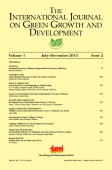
The International Journal on Green Growth and Development is an effort to stir a debate around emerging “green” concepts and development. The publication aims at building knowledge through stakeholder engagement on policy-relevant issues to understand the many facets of green growth and development. It is a step towards a forward-looking knowledge process for new opportunities linked with growth and sustainable development. The journal showcases new research through peer reviewed articles, opinions, and innovative practices.
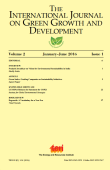
The International Journal on Green Growth and Development is an effort to stir a debate around emerging “green” concepts and development. The publication aims at building knowledge through stakeholder engagement on policy-relevant issues to understand the many facets of green growth and development. It is a step towards a forward-looking knowledge process for new opportunities linked with growth and sustainable development. The journal showcases new research through peer reviewed articles, opinions, and innovative practices.
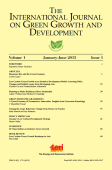
The International Journal on Green Growth and Development is an effort to stir a debate around emerging “green” concepts and development. The publication aims at building knowledge through stakeholder engagement on policy-relevant issues to understand the many facets of green growth and development. It is a step towards a forward-looking knowledge process for new opportunities linked with growth and sustainable development. The journal showcases new research through peer reviewed articles, opinions, and innovative practices.
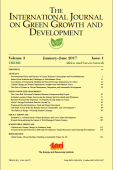
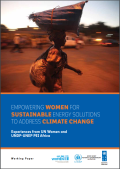
Africa has enormous potential for clean energy, given its ample resources of hydro, solar, wind and geothermal power. However, current highly centralized energy systems often benefit the rich and bypass the poor. On the other hand, decentralized renewable energy systems offer a great opportunity for women’s empowerment. As these are deployed at the local level, women are more likely to participate in related decision-making and be involved in the energy value chain.
